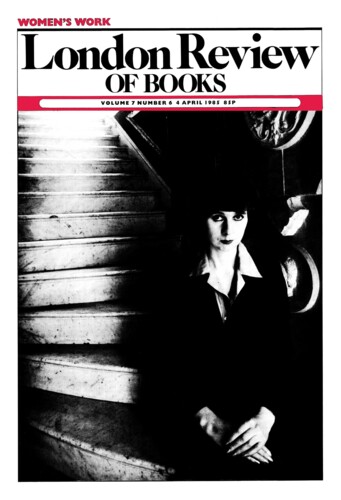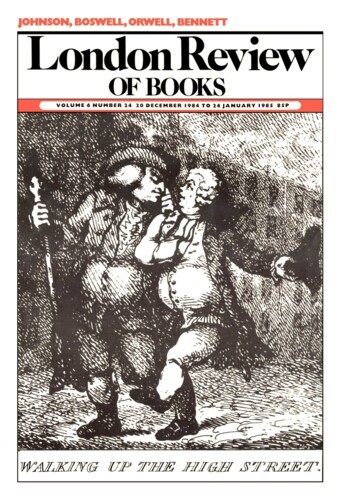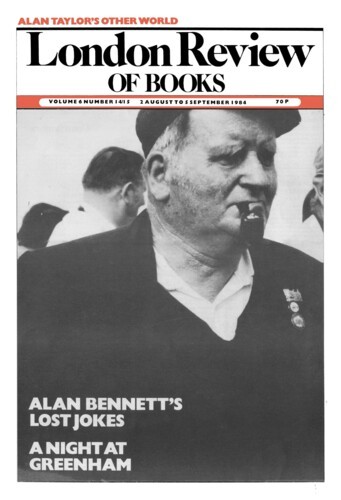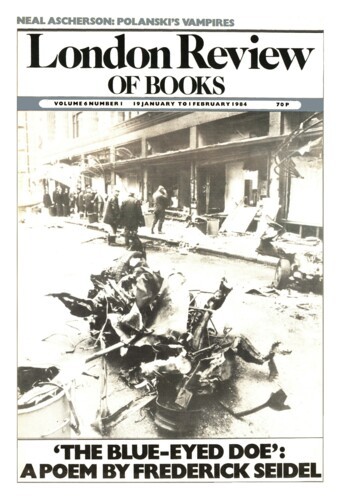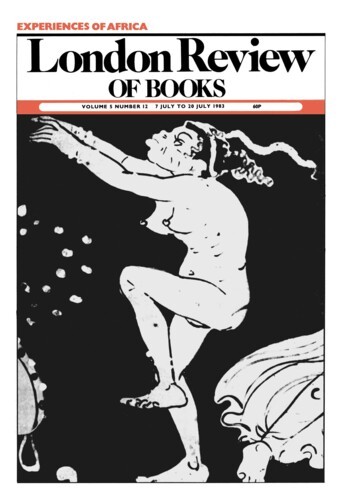Reading as a woman
Christopher Norris, 4 April 1985
Why these books should have come to a male reviewer is perhaps more a question for the editor than myself. All the same, it is an issue that can hardly be ducked in the context of present-day feminist debate. Is it possible for a well-disposed male heterosexual to ‘read as a woman’, overcoming all the gender-based habits and assumptions imposed by a rigidly patriarchal culture? Jonathan Culler argues as much in the opening chapters of his recent book On Deconstruction. For Culler, this serves as a paradigm case of the way that deconstructionist strategies of reading can work to undo such naturalised categories as ‘male’ versus ‘female’, conceived in biological or essentialist terms. It is not enough for feminist critics to identify subjectively with women writers, or with those elements of repressed female experience there to be uncovered in the texts of patriarchal tradition. Such thinking is the first stage only, since it cannot do more than put up local resistance and leave the opposition male/female firmly in place. What is needed, Culler argues, is a systematic process of displacement which interrogates the logic underlying such assumptions and shows it to rest on a certain blindness to its own textual workings. Thus Freud’s discourse on female sexuality reveals all the symptomatic twists and distortions of a theory bent upon establishing power over that which would otherwise elude its control. Hysteria and penis-envy are just two of those mythic explanations which Freud has to invent by way of warding off this threat to the phallocratic order of things.
